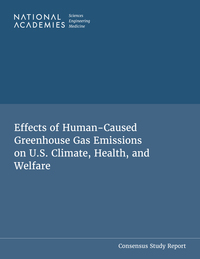The EPA has announced its final* ruling on the CO2 Endangerment Finding.
*not even close to final.
[Read more…] about EPA’s final* ruling on CO2Climate science from climate scientists...
The EPA has announced its final* ruling on the CO2 Endangerment Finding.
*not even close to final.
[Read more…] about EPA’s final* ruling on CO2by group 98 Comments
New email releases from the EDF/UCS lawsuit against the DOE provide a rarely-seen behind the curtain look at how the climate contrarians work.
[Read more…] about A peek behind the curtain…by Gavin
Here we go again. An obscure, methodologically poor, paper published with little to no review makes a convenient point and gets elevated into supposedly ‘blockbusting’ science by the merchants of bullshit, sorry, doubt. Actual scientists drop everything to respond, but not before the (convenient) nonsense has spread widely. Rebuttals are written and submitted, but by the time they are published everyone has moved on.
by group

The fast-tracked update of the 2009 EPA Endangerment finding from the National Academies for Science, Engineering and Medicine (NASEM), has now been released.
[Read more…] about Lil’ NAS Expressby Gavin
As we’ve mentioned, Andrew Dessler and Robert Kopp have been coordinating a scientific peer review of the DOW ‘CWG’ Critique of Climate Science. It is now out.
[Read more…] about Climate Scientists response to DOE reportby group
Guest commentary by Kerry Emanuel
Executive Summary
Chapter 6 of the draft DOE report examines whether global warming exacerbates extreme weather. It rightly notes that because events such as hurricanes are rare, detecting their response to climate change in short and imperfect historical records is extremely difficult—if not impossible. Yet the authors devote most of the remainder of the chapter to attempting just that. By omitting to frame such efforts in the context of theory and models, they commit three fundamental errors: 1) searching for trends where none were predicted, 2) neglecting important variables for which trends were predicted and 3) overlooking—or failing to acknowledge—that some predicted trends are of a magnitude that is not a priori detectable in existing noisy and short data sets. The draft report also overlooks recent literature on climate change effects on weather extremes, and quotes selectively and misleadingly from the most recent report of the Intergovernmental Panel on Climate Change (IPCC). For these reasons, I find much of Chapter 6 to be of questionable utility. There are at least three climate change-induced trends in hurricane-related hazards that were predicted theoretically, simulated by models, and confirmed by observations:
There is no robust scientific finding that hurricane frequency is increasing or expected to increase. Thus, much of Chapter 6 of the DOE report is devoted to refuting a hypothesis unsupported by scientific consensus. The short section on tornadoes does not include other more destructive aspects of severe convective storms, such as hail and damaging straight-line winds, and as with the section on hurricanes, omits inferences from theory and models.
[This commentary is also available as a pdf file]
[Read more…] about Critique of Chapter 6 “Extreme Weather” in the DOE reviewby group
The first somewhat comprehensive reviews of the DOE critical review are now coming online.
[Read more…] about Critiques of the ‘Critical Review’by group
In the EPA EF reconsideration document there is a section on p62 where they attempt to make the argument that the CO2 endangerment finding would also apply to direct water vapor emissions to the atmosphere, which is (according to them) obviously absurd. But both claims are bogus.
[Read more…] about Are direct water vapor emissions endangering anyone?by group
The EPA, along with the “Climate Working Group” (CWG) of usual suspects (plus Judith Curry and Ross McKitrick) at DOE, have just put out a document for public comment their attempt to rescind the 2009 Endangerment Finding for greenhouse gas emissions.
[Read more…] about The Endangerment of the Endangerment Finding?1,398 posts
15 pages
250,467 comments